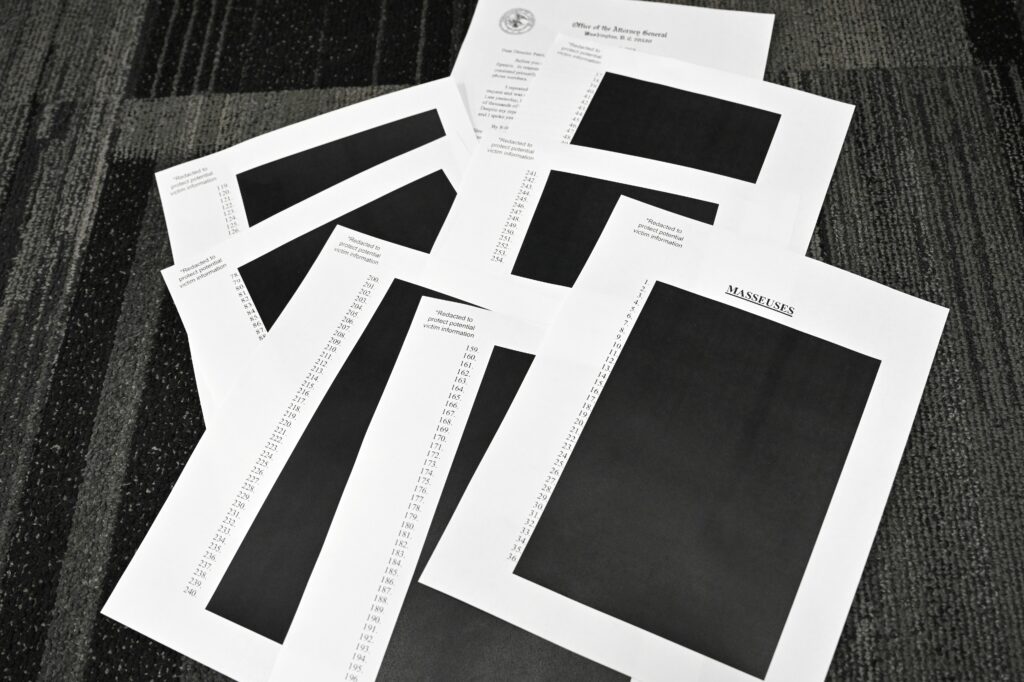Accord UE-Mercosur: Lula en appelle au “courage” des dirigeants européens
Le président brésilien Luiz Inacio Lula da Silva a appelé samedi les dirigeants de l’Union Européenne (UE) à faire preuve de “courage”, après le report de la signature de l’accord de libre-échange avec le Mercosur.”Sans volonté politique et sans courage de la part des dirigeants, ce ne sera pas possible de conclure une négociation qui traîne depuis 26 ans”, a déclaré Lula en ouverture du sommet du bloc sud-américain, à Foz do Iguaçu, dans le sud du Brésil.”Hier, j’ai reçu une lettre des présidents de la Commission européenne et du Conseil européen, dans laquelle tous deux expriment l’espoir de voir l’accord approuvé en janvier”, a-t-il ajouté.L’Argentine, le Brésil, le Paraguay et l’Uruguay espéraient initialement parapher le traité ce samedi, tout comme la présidente de la Commission européenne, Ursula von der Leyen, et la plupart des pays de l’UE.Mais cette signature a finalement été reportée, face à la colère des agriculteurs européens, notamment en France et en Italie.Vendredi, des dizaines d’agriculteurs ont manifesté devant la villa du président français Emmanuel Macron au Touquet, dans le nord de la France, déversant des tonnes de fumier, de pneus et de branchages à l’entrée de la résidence.Et samedi, des barrages sont toujours en place sur des axes routiers et autoroutiers du sud-ouest de la France, au premier jour des vacances scolaires dans le pays. M. Macron a jugé qu’il était “trop tôt” pour dire s’il acceptera la signature le mois prochain.”Nous connaissions tous la position historique de la France, ce n’était pas une nouveauté”, a déclaré Lula samedi.Au sujet de la réticence de la Première ministre italienne Giorgia Meloni, qui a jugé “prématurée” une signature de l’accord samedi, le président brésilien a affirmé qu’elle lui avait assuré lors d’une conversation téléphonique qu’elle serait “prête” à l’accepter début janvier.”Si elle est prête à signer et qu’il ne manque plus que la France, Ursula von der Leyen et António Costa (président du Conseil européen, ndlr) m’ont assuré que la France ne pourra pas, à elle seule, bloquer l’accord”, a lancé Lula.- “Défense du multilatéralisme” -L’accord UE-Mercosur permettrait aux européens d’exporter davantage de véhicules, machines, vins et spiritueux en Amérique du Sud. Dans le sens inverse, il faciliterait l’entrée en Europe de viande, sucre, riz, miel et soja sud-américains, ce qui alarme les filières concernées.Une source au sein de la Commission européenne et deux diplomates ont indiqué que la nouvelle échéance visée est désormais le 12 janvier au Paraguay, qui va succéder au Brésil à la présidence tournante du Mercosur.Mais le ministre paraguayen des Affaires étrangères, Rubén Ramírez, avait affirmé vendredi n’avoir reçu “aucune communication officielle” au sujet de cette date.Il avait également mis en garde l’UE, affirmant que la patience du Mercosur avait des limites.”Nous sommes prêts à aller de l’avant, sachant que l’Europe a ses délais à respecter pour régler les questions institutionnelles internes, mais en même temps, ces délais ne sont pas infinis”, avait-il lancé.Lula avait mis un point d’honneur à ce que le traité soit signé dans son pays, avant de transmettre la présidence du Mercosur au Paraguay.”Nous avions entre nos mains l’occasion de transmettre au monde un message important en défense du multilatéralisme et de renforcer notre position stratégique dans un contexte mondial de plus en plus compétitif. Mais, malheureusement, l’Europe ne s’est pas encore décidée”, a-t-il déploré.
Bangladesh: foule immense aux funérailles du leader étudiant assassiné
Des dizaines de milliers de personnes ont assisté samedi à Dacca aux obsèques d’un leader étudiant assassiné, deux jours après les violentes manifestations déclenchées par l’annonce de sa mort.Une immense foule a accompagné le cortège funèbre de Sharif Osman Hadi, figure de la révolte étudiante qui a conduit à la chute de l’ex-Première ministre autocratique …
Bangladesh: foule immense aux funérailles du leader étudiant assassiné Read More »
Newly released Epstein files: what we know
The release of documents related to late sex offender Jeffrey Epstein follows months of pressure on the Trump administration for transparency about the politically explosive case.Friday’s release, to meet a deadline set by Congress, was just the first tranche of what the administration is saying will be a massive volume of information. But it is already drawing criticism as the documents are heavily redacted.They include photos of high-profile figures, including former president Bill Clinton, and quickly provoked strong reactions from across the political divide.- What has been released? -Mid-afternoon on Friday the US Department of Justice provided a link to what it calls the “Epstein Library.” It includes four groups of documents: court records, disclosures from the DOJ -– the bulk of the new documents — freedom of information requests and disclosures from a US House oversight committee.Deputy Attorney General Todd Blanche said Friday there would be several hundred thousand documents released and several hundred thousand more in coming weeks.But it appeared many of the documents had been revealed previously. DOJ posted new documents on Friday totaling about 3,900 files.The release features numerous photographs not previously made public, and politicians and celebrities among those pictured. There are also video clips from inside the correctional center in New York from the day Epstein died by suicide in 2019 while awaiting trial on sex trafficking charges.- What do the files show? -In many cases, the files show little because of heavy redactions. For example, a list of 254 masseuses is entirely blacked out.In other cases there is little context provided, making it hard to interpret the significance of the information.One file contains dozens of censored images showing naked or scantily clad figures. Others show Epstein and companions, their faces obscured, with firearms.The expectation is that the files will shed light on Epstein’s network of associates — business executives, academics, celebrities and politicians, including President Donald Trump.However, it’s unclear how much the Justice Department, which controls the release, will allow to be made public and how it is selecting documents.Trump was a friend of Epstein, although he severed ties years before the financier’s 2019 arrest.- Celebrity sightings -The documents include several of Bill Clinton, taken some years ago. In one, he is pictured reclining in a hot tub with another person whose face is blacked out.Among celebrities featured are pop stars Michael Jackson, Diana Ross and Mick Jagger — all pictured with Clinton.Others featured include the former prince Andrew, his ex-wife Sarah Ferguson, actor Kevin Spacey and British tycoon Richard Branson.- Reactions -In deeply polarized Washington, the reaction was partisan in large part.The White House jumped on the Clinton appearances.”Slick Willy! @BillClinton just chillin, without a care in the world. Little did he know…” Communications Director Steven Cheung posted on X.The White House also touted the release as a show of transparency.But the top senator from the opposition Democrats, Chuck Schumer, complained that the heavily redacted documents release on Friday was just a fraction of the whole body of evidence.”Simply releasing a mountain of blacked out pages violates the spirit of transparency and the letter of the law,” Schumer said, adding that 119 pages of one document were completely blacked out.On the Republican side, some dissent emerged. Lawmaker Thomas Massie, who co-sponsored the law forcing the release of the files with Democrat Ro Khanna, accused Attorney General Pam Bondi of “withholding specific documents.”And Marjorie Taylor Greene, a onetime Trump ally who has shifted sides and resigned from Congress, said: “The whole point was NOT to protect the ‘politically exposed individuals and government officials’.”
Epstein files opened: famous faces, many blacked-out pages
The US Justice Department has begun releasing a long-awaited cache of records from its investigations into the politically explosive case of convicted sex offender Jeffrey Epstein — though much of the material remained heavily redacted.Among the trove released Friday are numerous photographs depicting former Democratic president Bill Clinton and other luminaries, including Mick Jagger and Michael Jackson, in Epstein’s social circle.The sweeping blackouts across many of the documents — combined with tight control over the release by officials in President Donald Trump’s administration — stoked skepticism over whether this disclosure will silence conspiracy theories of a high-level cover-up.In one example, a 119-page document labeled “Grand Jury-NY” is entirely redacted. Also, seven pages listing 254 masseuses have every name buried beneath thick black bars alongside the note, “redacted to protect potential victim information.” Even so, the files shed some light on the disgraced financier’s intimate ties to the rich, famous and powerful — Trump, once a close friend, among them.At least one file contains dozens of censored images of naked or scantily clad figures. Others show Epstein and companions, their faces obscured, posing with firearms.Previously unseen photographs include Maxwell with disgraced former prince Andrew, pictured lying across the legs of five people.Another photo shows a youthful-looking Clinton lounging in a hot tub, part of the image blacked out. In another, Clinton swims alongside a dark-haired woman who appears to be Epstein’s accomplice, Ghislaine Maxwell. – A ‘fraction’ of the evidence -The White House wasted no time seizing on Clinton’s appearances.”Slick Willy! @BillClinton just chillin, without a care in the world. Little did he know…” Communications Director Steven Cheung posted on X.Clinton’s spokesman Angel Urena responded to the newly released files by saying the country “expects answers, not scapegoats.””The White House hasn’t been hiding these files for months only to dump them late on a Friday to protect Bill Clinton. This is about shielding themselves,” Urena wrote on X.Democrats — and a handful of Republicans — voiced frustration that the release fell far short of what was mandated by the Epstein Files Transparency Act.Republican congressman Thomas Massie, who has long pushed for the release, said it “grossly fails to comply with both the spirit and the letter of the law.”That law required the government’s entire case file to be posted publicly by Friday, constrained only by legal and victim privacy concerns.Senate Minority Leader Chuck Schumer said Democrats would “pursue every option to make sure the truth comes out.”Trump spent months trying to block the disclosure of the files linked to Epstein, who died in a New York jail cell in 2019 while awaiting trial on sex-trafficking charges.The Republican president ultimately bowed to mounting pressure from Congress — including members of his own party — and last month signed the law compelling publication of the materials by Friday.Deputy Attorney General Todd Blanche acknowledged in a letter to Congress that the Friday release was incomplete, and that the Justice Department would complete production of files in the coming weeks.Prosecutors retain discretion to withhold material tied to active investigations, and Blanche said files had also been redacted to protect the identities of Epstein’s hundreds of victims.- ‘Democrat hoax’ -Trump once moved in the same Palm Beach and New York party scene as Epstein, appearing with him at events throughout the 1990s. He severed ties years before Epstein’s 2019 arrest and faces no accusations of wrongdoing in the case.But his right-wing base has long fixated on the Epstein saga and conspiracy theories alleging the financier ran a sex trafficking ring for the global elite.On the campaign trail, Trump vowed to release all the files. Yet after returning to office, he dismissed the transparency push as a “Democrat hoax.”Trump’s Justice Department ignited a political firestorm in July with a memo declaring there would be no further disclosures from the Epstein probe and his fabled “client list” did not exist before the president bowed to pressure.Maxwell, Epstein’s former girlfriend, remains the only person convicted in connection with his crimes, and is serving a 20-year sentence for recruiting underage girls for the former teacher and banker, whose death was ruled a suicide.
“C’est devenu banal”: aux Antilles, les armes à feu s’installent au quotidien
Quand son frère Jessy a été abattu d’une balle dans la tête, en plein jour, Lynsey Belveder n’a pas été surprise. “C’est quelque chose que j’avais toujours craint”, souffle la jeune Guadeloupéenne, qui n’imagine plus élever un enfant dans une société où “tous les jeunes sont armés”.”On connaît tous quelqu’un qui connaît quelqu’un qui a perdu un proche dans des circonstances pareilles”, reprend la jeune femme, gestionnaire de ressources humaines à Pointe-à-Pitre.Son frère, 23 ans, a été tué le 7 octobre à Grand-Camp, un quartier populaire des Abymes, pour une banale histoire de rivalité amoureuse. Depuis, Lynsey, se dit “à l’arrêt”, les “larmes aux yeux sans savoir pourquoi”.Une sirène de police, un garçon coiffé comme Jessy, et l’anxiété monte. Comme elle, de nombreuses familles guadeloupéennes sont confrontées à la banalisation des armes à feu.Lundi, le 50e homicide de l’année a été enregistré sur le ressort de la cour d’appel de Basse-Terre, qui comprend la Guadeloupe et la partie française de l’île de Saint-Martin, pour environ 410.000 habitants au total. La victime est un homme de 26 ans tué par balle dans le quartier de Carénage à Pointe-à-Pitre. Point commun de la plupart de ces homicides: ils ont été perpétrés par arme à feu. Selon le préfet de la Guadeloupe, Thierry Devimeux, 40.000 armes sont en circulation sur le territoire, soit plus d’une pour dix habitants. “Un recours complètement débridé aux armes à feu”, déplore le représentant de l’Etat dans un archipel où le taux d’homicide est six fois supérieur à la moyenne nationale.Signe des temps, les saisies explosent. “On découvre plus d’armes de guerre. De 2022 à 2024, on en trouvait une ou deux par an. Là, on peut en saisir jusqu’à trois trois d’un coup”, constate Éric Maurel, procureur général de la Guadeloupe.Le magistrat, qui n’a de cesse d’alerter sur le fléau depuis plusieurs mois, cite la découverte d’une cache contenant des armes longues et des munitions lourdes dans la cité de Mortenol, un quartier sensible de Pointe-à-Pitre, en novembre 2024.- Adolescents armés -Mais l’écrasante majorité des armes saisies restent des pistolets automatiques Glock ou Taurus, un modèle brésilien. La proximité du continent américain et la porosité des frontières, dans cette région éclatée en une multitude de micro-états, facilitent leur arrivée en Guadeloupe et en Martinique. En juin, les autorités judiciaires des Antilles françaises avaient déjà tiré la sonnette d’alarme. Éric Maurel s’inquiétait d’une évolution des gangs, “semblant évoluer vers des structurations mafieuses”.Lors d’une visite au pas de charge en août, Bruno Retailleau, alors ministre de l’Intérieur, avait annoncé l’envoi de 15 enquêteurs supplémentaires, l’installation de deux nouveaux radars et l’utilisation d’un drone pour contrôler le trafic maritime.Pour accélérer les enquêtes, la Guadeloupe sera dotée d’un laboratoire de balistique qui doit être “pleinement opérationnel début 2026″, indique Philippe Miziniak, directeur territorial de la police nationale.Mais ce qui inquiète aujourd’hui les autorités, c’est l’âge des mis en cause.”Voir autant de gamins aussi jeunes, porteurs d’armes et qui les utilisent, je n’ai jamais vu ça ailleurs”, affirme Éric Maurel, fort de 42 ans d’expérience, notamment en Corse et en banlieue parisienne.Selon lui, certains gangs mettent des armes entre les mains de mineurs de 13 ou 14 ans, livrés à eux-mêmes, dans un “état d’anomie” sans repères sociaux.Le général Christophe Perret, commandant la gendarmerie nationale en Guadeloupe, y voit aussi une mutation sociologique: “L’arme sert pour un jeune à s’affirmer en tant qu’individu”, avance le militaire.Et l’arme blanche, “outil traditionnel de la violence en Guadeloupe, a pratiquement disparu”, relève le général Perret. Sur les 50 homicides recensés depuis le début, 32 l’ont été par arme à feu.Une tendance que confirme Philippe Miziniak, directeur territorial de la police nationale. “Il y a un usage décomplexé des armes, pour des motifs vraiment futiles”, observe-t-il. Des conflits de voisinage, des altercations dans la rue, des gestes impulsifs.Conséquence: “de plus en plus de gens se promènent dans la voiture avec un revolver, une arme de poing, un fusil”, relève Grégory Guyard, avocat s’occupant de plusieurs affaires d’agression. Ce “au cas où” entraîne “un armement généralisé” et “des drames qui pourraient largement être évités”, renchérit-il.- Narcotrafic en hausse, mais pas central -Dans ce climat, la part des homicides liés au narcotrafic est en hausse. “On était à 6-7% il y a trois ans, on est maintenant plutôt autour de 20 à 25%”, détaille Éric Maurel.”Mais on est loin de Marseille, qui en est à 80-90%”, nuance-t-il.”L’essentiel de l’usage des armes à feu en Guadeloupe n’est pas lié au trafic de stupéfiants”, insiste le général Perret. Il évoque plutôt “des règlements de comptes, des vols à main armée qui tournent mal, des tirs d’intimidation entre bandes de quartiers et des violences intrafamiliales”.Si la Guadeloupe attire l’attention, le reste des Antilles est tout autant touché. A Saint-Martin, 34.000 habitants, sept personnes ont été tuées depuis janvier. Le phénomène y est même “sans commune mesure” avec la Guadeloupe, alerte le procureur Maurel.En Martinique, 355.000 habitants, les chiffres sont à peine meilleurs. Trois homicides ont ainsi eu lieu en quelques heures dans la nuit de vendredi à samedi, portant à 40 leur nombre depuis le début de l’année, dont 34 par arme à feu.Un de ces meurtres a particulièrement choqué: un homme de 25 ans, inconnu des services de police, a été abattu dans un véhicule de location. Un enfant de trois ans qui se trouvait à ses côtés a été grièvement blessé à la tête. Le ou les tireurs courent toujours.Face à cette flambée de violence, le procureur de la République, Yann Le Bris, a lancé un appel à témoins et appelé à “une prise de conscience du rapport aux armes sur le territoire”.Pour Lynsey Belveder, qui tente de faire son deuil, le constat est implacable. “Aujourd’hui j’ai 33 ans, j’ai peur de faire un enfant dans une société comme celle-là”.





